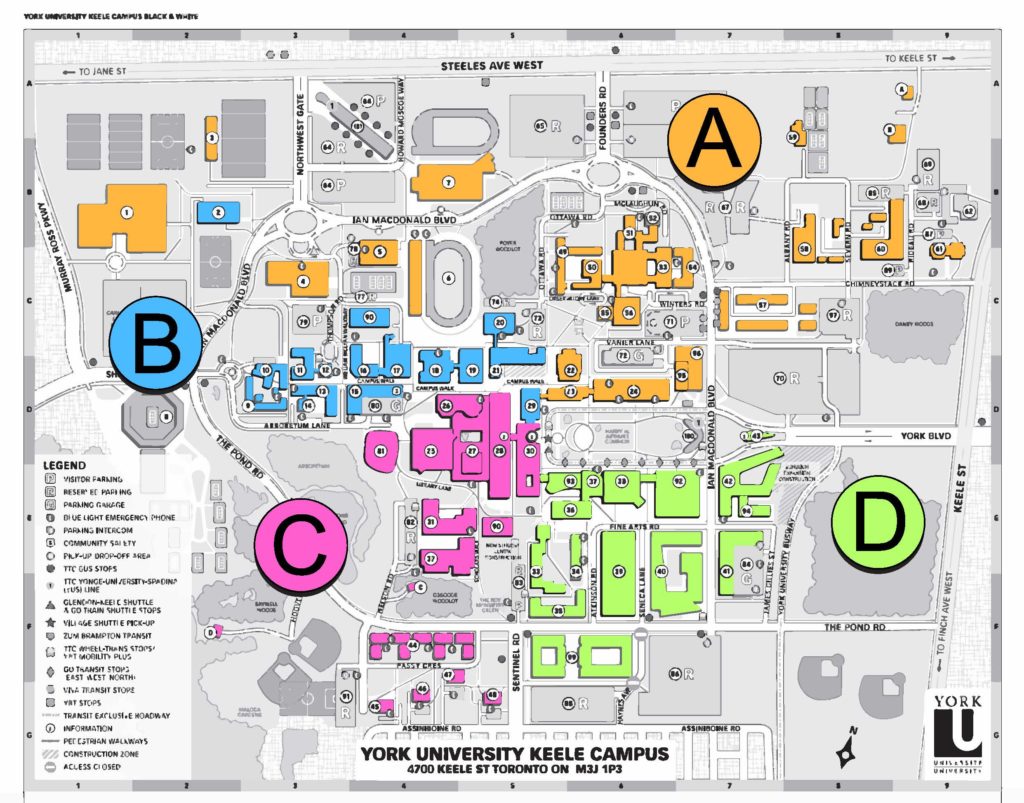Maintenance Services is responsible for the maintenance of campus buildings including heating, cooling, electricity, water, elevators, keys and locks, roofs, windows, floors and doors, minor furniture repair, plumbing, lighting, ceiling tiles, carpets, painting, and carpentry.

Zone Model
The Keele Campus operates on a zone model and is divided up into quadrants.
Each zone has a base zone team consisting of:
- Zone Supervisor
- Carpenters
- Control Mechanics
- Electricians
- Millwrights
- Painters
- Plumbers
